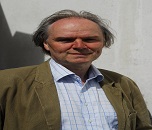
Magnus S Magnusson
University of Iceland, Iceland
Title: T-patterns in human and neuronal interactions and on DNA: Spatio-temporal self-similarity and translation symmetry
Biography
Biography: Magnus S Magnusson
Abstract
How do cells organize their interactions in time? As a candidate for the search for answers, this talk considers a particular pattern type, called T-pattern. Originally proposed and developed for ethological analysis of human interaction, it has more recently also been applied to dynamic signaling between cells in neuronal networks in brains. The T-pattern is a self-similar hierarchical structure on a single dimension, in time or space, and can be seen as a particular recurrent statistical pseudo-fractal object characterized by statistically significant translation symmetry over all its instances. Just two occurrences may allow detection. A number of extensions to the T-pattern have been defined together constituting the T-System, all of which can be detected using the especially developed THEMETM software widely applied to interaction analysis of organisms from neurons to humans, while DNA and protein analyses are in progress. Examples of T-patterns detected in human interactions and within neuronal networks are presented. The T-pattern structure of genes in DNA and, consequently, in proteins, suggests self-similar spatio-temporal structure across wide spans of temporal and spatial scales, from nano, to neuronal, to human. The self-similarity extends to broader aspects of intra- and inter-cellular interactions as the organization of the biologically recent human mass-societies seem to reflect important aspects of social organization in Cell City as will also be exemplified.

